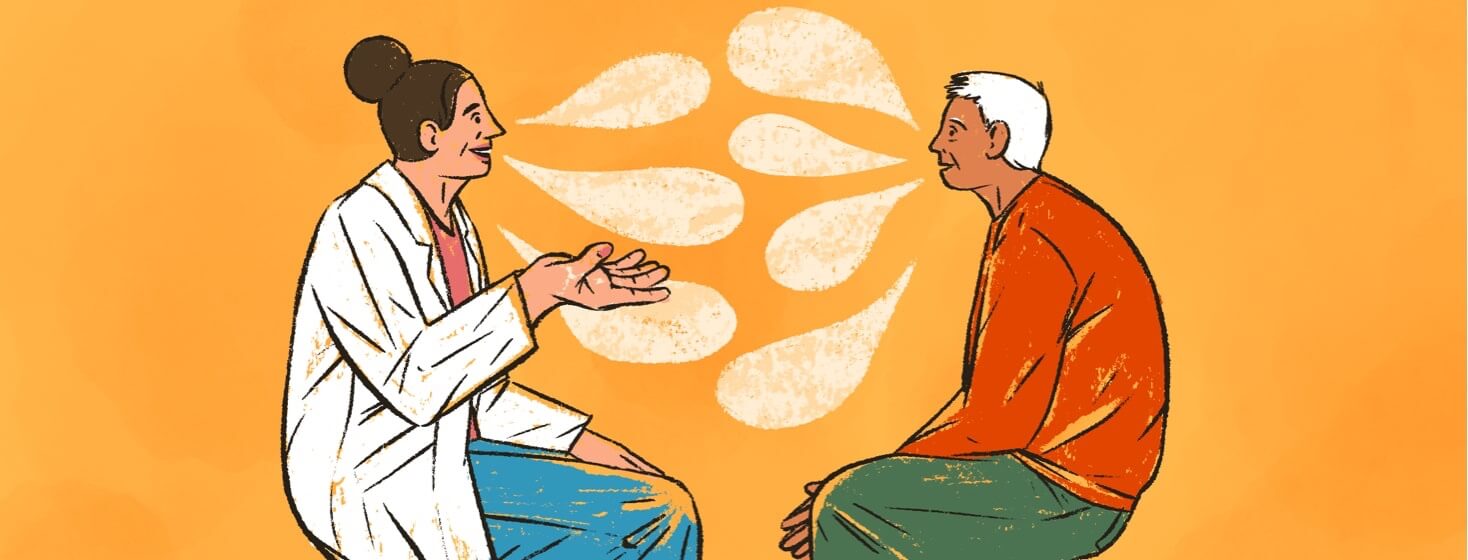You Are Your Own Best Advocate
“You are your own best advocate!” You hear this a lot in this community because it is true. You ARE your best advocate unless you have someone to advocate for you.
This is not an insult to doctors, as there are many great doctors. Most great doctors have their patient’s best interests in hand.
That said, doctors are busy people. Like all of us, they are humans incapable of perfection.
Speak up for yourself
Tell your doctor how you are feeling!
They cannot read your mind. They cannot know what you are thinking. They cannot know, without you saying, if you're feeling pain, shortness of breath, or any other symptom.
Your doctor meets with you once every six months or once a year. Your doctor meets and talks with you in a matter of minutes. Your doctor assesses, listens to, and treats you based on wisdom and experience.
Your doctor moves on to the next patient. In this sense, you are a number with your doctor.
That’s not to say your doctor does not care about you. That’s not to say your doctor doesn’t fully review your chart and listen to you. It’s just the way it is.
You live your life every day. You know what you are capable of doing.
You know if you feel pain and symptoms and when and how often. Such as fatigue, shortness of breath, coughing, chest congestion, etc.
Your doctor cannot see all of your symptoms at all times. So, if you do not share how you are doing, your doctor cannot possibly know.
You need to advocate for yourself. You are a unique case. No one knows you better than you, not even your doctor. So tell your doctor how you are feeling.
Start the conversation with your doctor
A doctor may say things like, “I’m here to help. I only know from my experience and what I learned at school. We are not God. So it’s huge advocating for yourself. If you have a question, ask it! If you are worried that you have “X” disease, ask me about it. If you want to try “X” treatment, ask me about it.
Do your research
Do your research. Educate yourself. Get ideas.
We are all guilty of doing our own research, which is good. Of course, it is highly recommended that we research reputable websites or read books by reputable authors.
Many of us get ideas from others who are living with COPD. We learn from others in communities like ours.
Educating yourself in this way is great, as it helps you know your disease better. It helps you to understand the symptoms you are experiencing and possible causes.
Do not diagnose yourself. Learn from your research, and use this wisdom to understand better and communicate with your doctor. Use this information to pose questions and start conversations with your doctor.
This should lead to a discussion. Your doctor should give you a satisfactory explanation as to what he or she thinks.
I do this all the time with my doctors. What can it hurt? Sometimes my doctors agree with me, and sometimes they do not. Still, it results in a nice discussion.
“Hey, my research on the Internet makes me wonder if I also have COPD. What do you think?”
Your doctor may say something like, “You know, that may be a good thing to investigate. How about if I order some tests.”
Or they may say something like, “No. I do not think you have that, and here’s why!”
Through your research, you may learn about a new treatment. You may wonder, “Hmm, would this benefit me?” So you pose this question to your doctor.
Their reply may be, “Yes, that is worth looking into.” Or “I think that is a great treatment for poeple with such and such a diagnosis, but I don’t think it would be something for you.”
Keep going until you get answers
As noted above, doctors are not all-knowing. The knowledge of each doctor is limited.
So, if a good doctor cannot give you the answer you deserve, then this is where you should be referred to a specialist. If you think you’d benefit from a specialist, you can always post the question: “Hey, do you think I would benefit from seeing a pulmonologist?”
It can’t hurt.
What about you?

Join the conversation